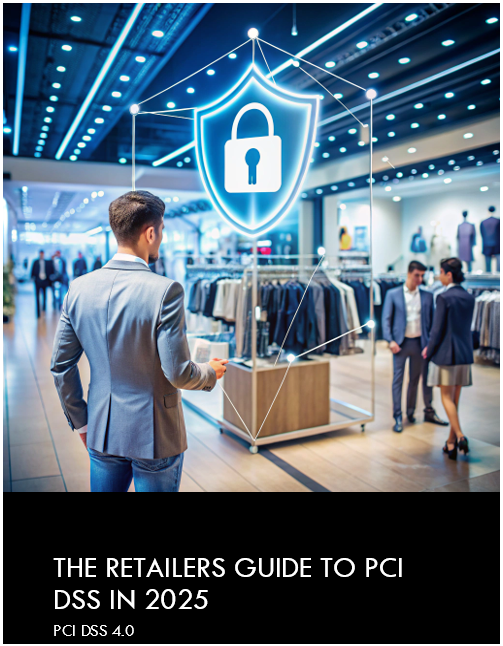Artificial intelligence (AI) is revolutionizing the business landscape. From streamlining operations to driving advanced data insights, AI has become an indispensable tool for enterprises looking to stay competitive. However, as more companies rush to implement AI, they often overlook a critical aspect—AI security. The reality is that without proper safeguards, AI systems can expose businesses to serious risks, including unintended data disclosures and cybersecurity vulnerabilities.
For executives and decision-makers, particularly CEOs, CIOs, and Chief Counsels, securing AI must be a top priority. In this post, we’ll explore the key challenges of AI security, share real-world examples of data leaks, and discuss how businesses can protect their sensitive data while leveraging AI’s full potential. We’ll also delve into the growing market of internal/private AI solutions and AI security vendors, and how these options can help safeguard enterprise data.
The Rising Threat of AI Data Leaks
AI has the potential to transform businesses, but with this power comes significant risk. One of the most pressing concerns is data security. According to a recent CNBC report, 80% of companies cite data security as their top concern when deploying generative AI systems. This isn’t just a theoretical concern—45% of organizations have already experienced unintended data exposure as a result of implementing AI technologies.
A prime example of this is the 2023 Microsoft AI data leak, where 38 terabytes of sensitive information were accidentally exposed. This incident highlights a key issue many enterprises face: while AI systems can provide powerful insights and efficiencies, they also introduce new vulnerabilities. For companies relying on AI to manage customer records, financial data, and proprietary information, the risks of data leaks are too significant to ignore.
Why Do AI Data Leaks Happen?
Several factors contribute to the rising number of AI-related data leaks. Based on my experience and industry insights, the most common causes include:
- Over-Provisioned Access: Often, employees are granted access to far more data than they need for their roles. This can lead to accidental exposure of sensitive information. AI-powered tools, such as enterprise search engines or “copilots,” can exacerbate this issue by making it easier for unauthorized personnel to access confidential data.
- Insufficient Data Anonymization: AI systems require large amounts of real-world data to function effectively. If that data isn’t properly anonymized, it can lead to the unintentional use or exposure of sensitive information, including customer details, financial records, and proprietary business insights.
- Inadequate Access Controls: Without robust access controls in place, it becomes difficult to monitor who is accessing what data within an AI system. This lack of oversight creates a security gap, increasing the risk of data breaches and leaks.
- Improper Integration with Enterprise Systems: When AI tools are integrated with existing enterprise systems without proper security safeguards, they can create vulnerabilities that didn’t exist before. AI systems need to be carefully configured and monitored to ensure they don’t inadvertently expose sensitive information.
The Rapid Growth of AI in Enterprises
The speed at which AI is being adopted by enterprises is staggering. According to the Netskope Threat Labs report, the use of AI applications in business is growing exponentially, with tools like ChatGPT leading the charge. This rapid adoption is not without consequences. As more companies integrate AI into their daily operations, the risk of accidental data exposure increases. AI tools, while powerful, can expose organizations to significant security risks if not properly managed.
In highly regulated industries like finance and healthcare, companies are taking a more cautious approach to AI adoption. In some cases, organizations have completely blocked the use of AI apps until they can implement more stringent security measures. While this is a temporary solution, it underscores the need for businesses to carefully evaluate the security risks associated with AI technologies.
The Emerging Market of AI Security Vendors
As the risks of AI adoption become more apparent, the market for AI security solutions is expanding rapidly. Businesses no longer have to navigate the complexities of AI security on their own. A growing number of AI governance and security vendors are offering specialized tools to help enterprises mitigate the risks associated with AI.
Here’s how some vendors are addressing AI security challenges:
- AI Model Auditing: Some companies specialize in auditing AI models to ensure they are secure and compliant with industry regulations. This helps organizations identify potential vulnerabilities in their AI systems before they become a problem.
- Real-Time Monitoring: AI security vendors are developing real-time monitoring systems that flag unusual data access patterns, helping enterprises detect potential security breaches early. These systems can automatically alert security teams to take action before a breach occurs.
- Access Management: Vendors are offering advanced access management tools that allow organizations to control who can access sensitive data within their AI systems. These tools help ensure that only authorized personnel have access to critical information, reducing the risk of accidental exposure.
The Case for Internal/Private AI Solutions
One of the most promising developments in AI security is the rise of internal or private AI solutions. Rather than relying on publicly available AI tools, many companies are opting to build their own in-house AI environments. These private AI platforms allow businesses to control their AI systems and keep sensitive data within their own firewalls, significantly reducing the risk of data leaks.
Internal AI solutions offer several key benefits:
- Enhanced Data Control: With a private AI system, businesses have full control over their data. They can ensure that sensitive information is not shared with third-party AI platforms, reducing the risk of unintended data exposure.
- Customization: Private AI solutions can be tailored to the specific needs of an organization. This allows companies to implement custom security protocols that align with their existing infrastructure and compliance requirements.
- Compliance: For industries subject to strict regulations, such as finance and healthcare, private AI solutions provide an additional layer of security that can help meet regulatory requirements.
Companies that handle sensitive data should seriously consider adopting internal AI platforms as a way to mitigate the risks associated with public AI tools. While the initial investment may be higher, the long-term benefits of enhanced security and data protection are well worth it.
How to Secure AI in Your Enterprise
So, what can your organization do to secure its AI systems? Here are a few best practices that every enterprise should consider:
- Implement Robust Data Governance: Ensure that only authorized personnel have access to sensitive data. Regular audits of access controls can help identify potential security gaps and reduce the risk of data leaks.
- Consider Internal AI Solutions: If your organization handles sensitive or proprietary data, consider adopting an internal AI platform. This will allow you to maintain control over your data and reduce reliance on third-party AI tools.
- Partner with AI Security Vendors: Take advantage of the growing market of AI security solutions. Vendors can provide specialized tools and services, such as AI model auditing, real-time monitoring, and access management, to help secure your AI systems.
- Train Employees on AI Security: No security system is foolproof without proper training. Ensure that your employees understand the risks associated with AI tools and are trained to use them responsibly.
Conclusion: A Call to Action for Executives
AI is transforming industries and driving innovation, but it comes with its own set of risks. For CEOs, CIOs, and Chief Counsels, securing AI should be a top priority. Whether it’s through tightening access controls, adopting private AI platforms, or partnering with AI security vendors, enterprises need to take proactive steps to protect their data in this new age of technology.
As the market for AI security solutions continues to grow, businesses have more options than ever to safeguard their sensitive information. The question now is: Will your organization be ready to secure its AI systems, or will it be the next headline for an unintended data leak?
If you’re ready to take control of your AI security, let’s start the conversation. Contact us today to learn how our Fractional CISO services can help you navigate the complexities of AI security and keep your enterprise safe.





